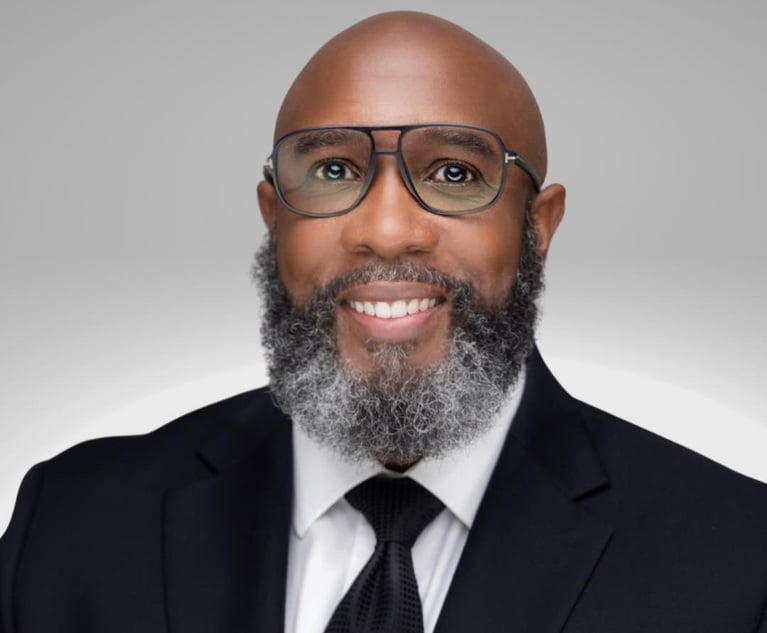No Dodgy Deals: Meet Jose Arrojo, Miami-Dade's New Ethics Commission Director
People pay attention when a mayor does a strange transaction or a politician gets caught lobbying without a license. But what they often don't see, according to former state prosecutor and private defense attorney Jose J. Arrojo, are the unethical transactions that could have happened—but didn't, thanks to the Miami-Dade Commission on Ethics and Public Trust.
November 20, 2018 at 02:11 PM
6 minute read
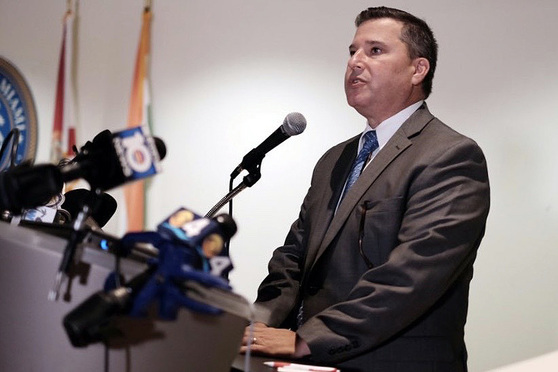 Jose Arrojo, executive director of the Miami-Dade Commission on Ethics and Public Trust. (Courtesy photo)
Jose Arrojo, executive director of the Miami-Dade Commission on Ethics and Public Trust. (Courtesy photo)
For former state prosecutor and private defense attorney Jose J. Arrojo, there's a novelty to addressing crime before it happens.
“Someone who's about to commit a crime doesn't call the prosecutor's office and say, 'Hey, I'm thinking about doing this. Is that a crime? Should I do it?' ” Arrojo said.
But that's exactly what happens at the Miami-Dade Commission on Ethics and Public Trust, where the focus is on prevention. Since becoming executive director in September, Arrojo wants more people to understand the agency's mission.
Because sure, people pay attention when a mayor does a dodgy deal or a politician gets caught lobbying without a license. But what they often don't see, according to Arrojo, are the unethical transactions that could have happened—but didn't.
“ That's the beauty of the agency,” Arrojo said. “There's this whole population of people out there that are engaging in appropriate, ethical conduct, in large part because they sought our guidance or training.”
Arrojo's team of investigators and lawyers get calls, emails and requests each day from South Florida government officials and employees wondering whether a procurement process or potential side project complies with the Code of Ethics Ordinance, set up to ensure transparency in government.
In response, the agency releases formal and informal opinions daily, advising against plans that violate code and pointing out a better way to accomplish a goal.
“I don't think anyone here is Pollyanna enough to think there aren't transactions going on as we speak that are unethical or based on self-interest,” Arrojo said. “But over a decade and a half, thousands and thousands of people have come to us, and we've provided them guidance, and they did the right thing.”
 Beckham soccer stadium.
Beckham soccer stadium.Related story: David Beckham Faces Ethics Complaint Claiming Improper Soccer Stadium Lobbying
Any podium
Citizens also can file complaints or inquire about the actions of elected officials—options many people don't even know they have, according to Arrojo. He wants to change that and encourages Florida Bar members to join him.
“I am willing to partner with anybody,” Arrojo said. “Anybody that wants to stand up on a podium with me someplace and say, 'This is what the Commission on Ethics does and this is what the ordinance does. And as a citizen, you can raise your hand and say, wait a minute, I think there's something wrong or there's a transaction that doesn't sound right. Can you look at this?'”
Election time is high season at the ethics, which provides mandatory training for all elected officials—from mayors to advisory board members—whether it's their first rodeo or not. At the end of every election cycle, winners have to sit through hours of training on the ethics ordinance, the state's Sunshine Law and public record laws.
“We're in the process of trying to get everyone in, get them trained and have them move on their way,” Arrojo said.
'Cops and robbers'
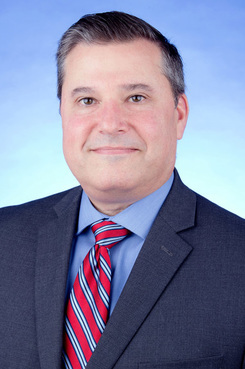 Jose Arrojo, executive director of the Miami-Dade Commission on Ethics and Public Trust. (Courtesy photo)
Jose Arrojo, executive director of the Miami-Dade Commission on Ethics and Public Trust. (Courtesy photo)Government, politics and history have always been ”kind of a religion” for Arrojo, who took his first job at the State Attorney's Office in Miami under Janet Reno.
Arrojo was assigned to the felony trial unit, where he investigated a serial armed robber and immediately knew he was in the right place.
“It's government, constitutional law and cops and robbers all mixed into one, so it was right up my alley,” Arrojo said.
Over time, Arrojo narrowed his practice to special prosecutions, focusing on public corruption, organized crime and complicated fraud cases, one of which centered around a huge voter fraud investigation in 1990s Miami and implicated Miami City Commissioner Humberto Hernandez.
Arrojo later crossed the aisle, representing police officers and corrections officers caught up in labor disputes—a career move he said gave him an incredible appreciation for the defense function.
“You can't get up in a courtroom with your client sitting next to you and say, 'Yeah, you guys are right,'” Arrojo said. “For me, it was an enormous growing experience as a lawyer to have to get up in federal district court and in good faith vigorously defend a client or a position that maybe was a weak position.”
With prosecution, after all, comes the discretion to pursue or drop cases. As a defense attorney, there's no such luxury. That experience, Arrojo said, made him a better prosecutor.
“Career prosecutors are a wonderful breed,” Arrojo said. “But I realized in a very concrete way that, just because somebody said you did something, doesn't necessarily mean you did it or that you did it in the way they're suggesting you did.”
Beneath Arrojo's fascination with law, government and history is his family's story. Arrojo's father grew up in Spain during its bitter civil war in the 1930s, which saw him drafted into the Spanish military. He later immigrated to Cuba, where he met Arrojo's mother, lost everything to the Cuban revolution and rebuilt their lives in Miami.
Arrojo isn't trying to save the world but rather keep his door open to it. In a year's time, he hopes to say that more South Floridians from all walks of life know the commission is there for them.
“It's a big job,” Arrojo said. “I just hope that I can do my part, and I'm not going to do it alone. I'm going to be knocking on a lot of doors asking for help.”
Jose J. Arrojo
Born: March 1963, Miami
Spouse: Brenda Christie Arrojo
Children: Jacob James Arrojo, Christie Lee Quintero
Education: Florida State University, J.D., 1987; University of Miami, B.S., 1985
Experience: Executive director, Miami-Dade Commission on Ethics and Public Trust, 2018; Chief assistant state attorney, Miami-Dade state attorney's office, 2004-2018; Associate, Ronald J. Cohen P.A., 2001-2004; Assistant state attorney, Miami-Dade state attorney's office, 1997-2000; General counsel, Dade County Police Benevolent Association, 1993-1997; Attorney, Miami-Dade state attorney's office, 1988-1993
Related stories:
Commissioner Carollo Faces Federal Suit by Miami Developers Claiming Harassment
Richard Serafini: The Sherlock Holmes of White-Collar Criminal Law
This content has been archived. It is available through our partners, LexisNexis® and Bloomberg Law.
To view this content, please continue to their sites.
Not a Lexis Subscriber?
Subscribe Now
Not a Bloomberg Law Subscriber?
Subscribe Now
NOT FOR REPRINT
© 2025 ALM Global, LLC, All Rights Reserved. Request academic re-use from www.copyright.com. All other uses, submit a request to [email protected]. For more information visit Asset & Logo Licensing.
You Might Like
View All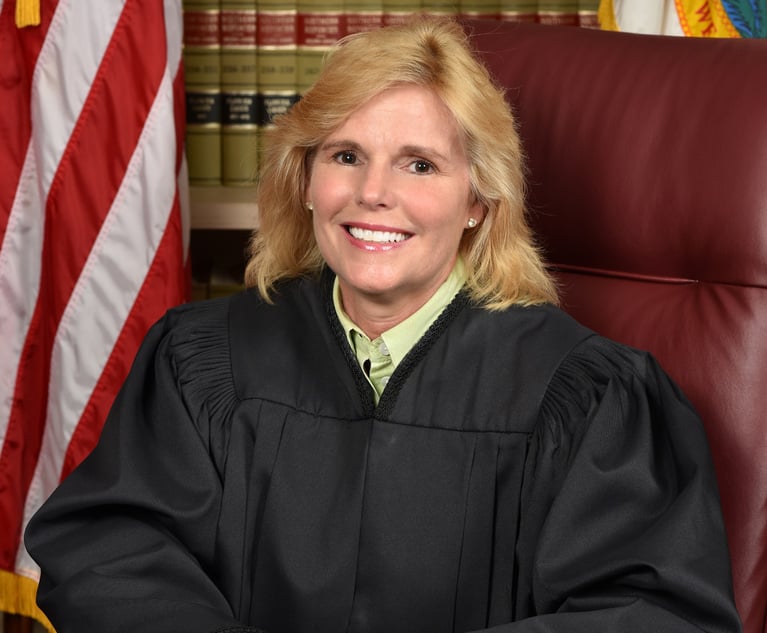
Carol-Lisa Phillips to Rise to Broward Chief Judge as Jack Tuter Weighs Next Move
4 minute read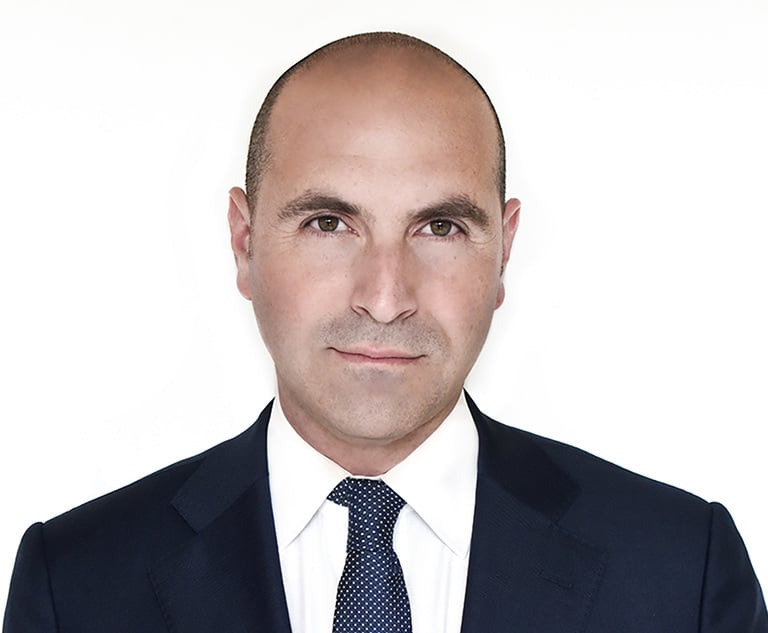
Growing Referral Network, Alternative Fees Have This Ex-Big Law’s Atty’s Bankruptcy Practice Soaring
5 minute read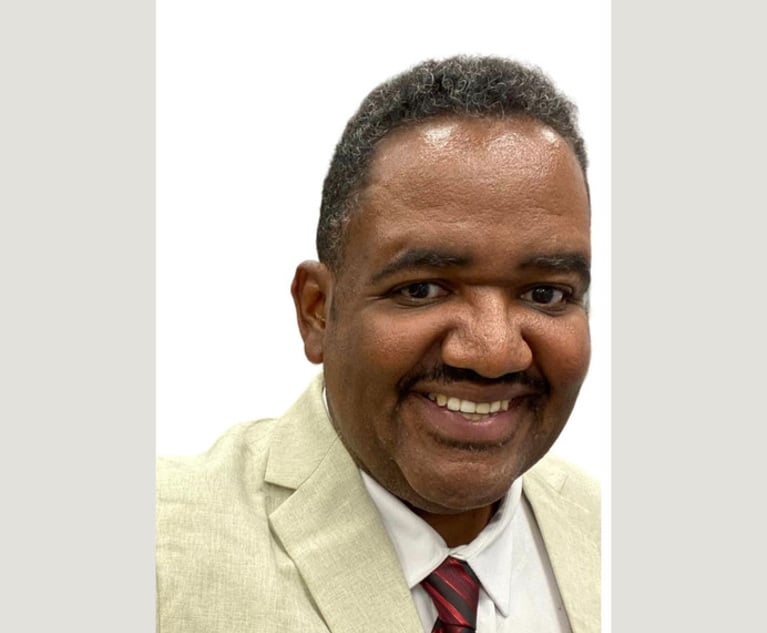
Against the Odds: Voters Elect Woody Clermont to the Broward Judicial Bench
4 minute readTrending Stories
Who Got The Work
J. Brugh Lower of Gibbons has entered an appearance for industrial equipment supplier Devco Corporation in a pending trademark infringement lawsuit. The suit, accusing the defendant of selling knock-off Graco products, was filed Dec. 18 in New Jersey District Court by Rivkin Radler on behalf of Graco Inc. and Graco Minnesota. The case, assigned to U.S. District Judge Zahid N. Quraishi, is 3:24-cv-11294, Graco Inc. et al v. Devco Corporation.
Who Got The Work
Rebecca Maller-Stein and Kent A. Yalowitz of Arnold & Porter Kaye Scholer have entered their appearances for Hanaco Venture Capital and its executives, Lior Prosor and David Frankel, in a pending securities lawsuit. The action, filed on Dec. 24 in New York Southern District Court by Zell, Aron & Co. on behalf of Goldeneye Advisors, accuses the defendants of negligently and fraudulently managing the plaintiff's $1 million investment. The case, assigned to U.S. District Judge Vernon S. Broderick, is 1:24-cv-09918, Goldeneye Advisors, LLC v. Hanaco Venture Capital, Ltd. et al.
Who Got The Work
Attorneys from A&O Shearman has stepped in as defense counsel for Toronto-Dominion Bank and other defendants in a pending securities class action. The suit, filed Dec. 11 in New York Southern District Court by Bleichmar Fonti & Auld, accuses the defendants of concealing the bank's 'pervasive' deficiencies in regards to its compliance with the Bank Secrecy Act and the quality of its anti-money laundering controls. The case, assigned to U.S. District Judge Arun Subramanian, is 1:24-cv-09445, Gonzalez v. The Toronto-Dominion Bank et al.
Who Got The Work
Crown Castle International, a Pennsylvania company providing shared communications infrastructure, has turned to Luke D. Wolf of Gordon Rees Scully Mansukhani to fend off a pending breach-of-contract lawsuit. The court action, filed Nov. 25 in Michigan Eastern District Court by Hooper Hathaway PC on behalf of The Town Residences LLC, accuses Crown Castle of failing to transfer approximately $30,000 in utility payments from T-Mobile in breach of a roof-top lease and assignment agreement. The case, assigned to U.S. District Judge Susan K. Declercq, is 2:24-cv-13131, The Town Residences LLC v. T-Mobile US, Inc. et al.
Who Got The Work
Wilfred P. Coronato and Daniel M. Schwartz of McCarter & English have stepped in as defense counsel to Electrolux Home Products Inc. in a pending product liability lawsuit. The court action, filed Nov. 26 in New York Eastern District Court by Poulos Lopiccolo PC and Nagel Rice LLP on behalf of David Stern, alleges that the defendant's refrigerators’ drawers and shelving repeatedly break and fall apart within months after purchase. The case, assigned to U.S. District Judge Joan M. Azrack, is 2:24-cv-08204, Stern v. Electrolux Home Products, Inc.
Featured Firms
Law Offices of Gary Martin Hays & Associates, P.C.
(470) 294-1674
Law Offices of Mark E. Salomone
(857) 444-6468
Smith & Hassler
(713) 739-1250





